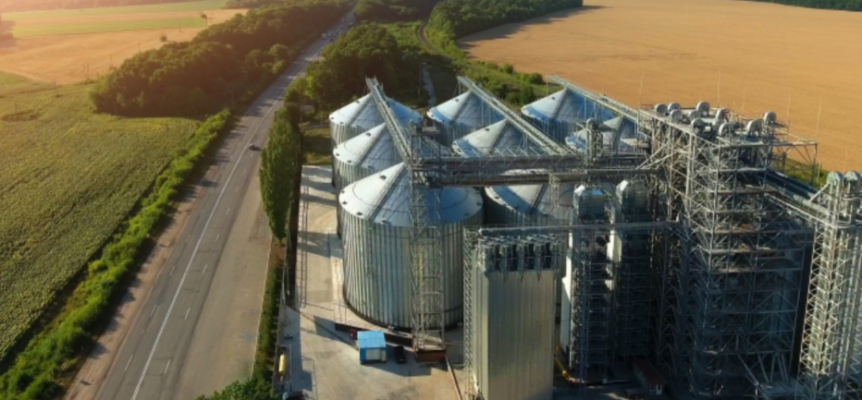By Sarah Licata for AssuredPartners Managing projects in the construction industry means managing risk. Every step in a project from before it has even started until after it has been completed can leave you open to potential risks. These are a few of the most common construction risks: Safety Job Site Security Project Steps you can take to mitigate potential loss>>>
Incident Track & The Risk Management Center
By Tara Crisp for AssuredPartners One of an employer’s most tedious tasks is tracking incidents and compiling reports on those incidents. What incidents are you trying to track? Where do you put them all? How do I know if I have a trend? Do I really have to sort through all of my incident reports or loss runs at the end of the year to generate my OSHA 300 logs? Utilizing AssuredPartners Incident Track within the Risk Management Center (RMC) may be your answer to these questions and more. Tell me more>>>
Nine Critical Commercial Property Risks to Watch
By R&I Editorial Team for Risk & Insurance From hurricane season to protests on the street, these are the major property risks of note for businesses of all sizes. Aging Infrastructure Extreme Weather Power Grid Failure Flooding Inflation Valuation Accuracy Protests and Civil Unrest Water Damage Supply Chain Disruption Click for details>>>
Avoiding Pitfalls in Planning a Return-To-Work Process
By Tara Crisp for AssuredPartners Return-to-work (RTW) is a complex process and understanding it is a valuable tool in an employer’s belt. The process assists the employer with showing employees how they are valued by planning for alternative solutions that will benefit the injured worker financially and psychologically. Thoughtfully executed RTW programs will plan for worst-case scenarios that provide resources for managers to utilize while meeting the needs of the most restricted worker. Return to work programs are one of the few tools that employers have to manage their experience modification factor. For employers that rely on their experience modification factor to secure and maintain contracts, this pre-planning can be invaluable. If you work in an experience rate adjustment state …
Vaccine Mandate Update: How the Latest Legal Rulings Could Influence EPLI Coverage
By Courtney DuChene for Risk&Insurance Employers who were preparing to implement vaccine or test requirements might be wondering what they should do to protect their workforce and shield themselves from EPL risk. The U.S. Supreme Court blocked an Occupational Health and Safety Administration’s (OSHA) emergency temporary standard, which would have required employers with 100 employees to either mandate vaccination against the SARS-CoV-2 virus or to test workers weekly. Click to learn if employers can mandate a vaccination>>>
Insureds Should Be Prepared for Complex Renewals
By Emma Brenner for Risk & Insurance In a world that continues to be with unexpected risks, it’s no surprise that insurance markets also experience the same ups and downs. Last year was the most chaotic insurance market the casualty space has seen in the last 30 years. Marked by dwindling capacity, rate increases and non-renewals, the year was a whirlwind for insureds and insurers alike. 2021 is proving to be only somewhat less chaotic. Risk Placement Services’ “U.S. Casualty Market Outlook: Mid-Year 2021” report detailed the trends in the casualty market during the first half of the year and how carriers can craft successful responses for the risks that lie ahead. Key Takeaways>>>
Mandates and Old Man Winter
By Kevin Rettberg for AssuredPartners The weather is turning, and with it the conditions on the roads will be changing. The incoming winter weather is set to turn the peace and quiet of the tranquil summer, sun-filled roads into a wintry mix of ice and snow in many areas of the country. The idea of what winter brings is nothing new, but somehow this winter feels a little unlike anything we have every experienced. Our weather is a microcosm of what is happening in the US right now: a calm before a storm. However, while we know exactly what weather brings us, there is an upcoming vaccine mandate that is causing a concern from the unknowns that it causes many …
Does Stock Throughput Insurance Make Sense for Your Agribusiness Operation?
By Gina Ekstam for AssuredPartners As the property insurance market continues to put pricing pressure on renewals, some agribusiness operations have benefited from specialty insurance programs, such as stock throughput coverage, to help them navigate the challenging marketplace. A form of inland marine insurance, a stock throughput program insures a product throughout the supply chain and accounts for any potential gaps in coverage. From the time the product is shipped, stored, and delivered to its final destination, there is a lot at stake. A stock throughput policy provides continuous coverage against all risks not explicitly excluded in the contract as long as the insured has ownership or responsibility for the product. What are the benefits>>>
Improve Operational Health, Maximize Flexibility to Mitigate Drought Risk
By Gina Ekstam for AssuredPartners According to NOAA, the average global surface temperature was the sixth highest for August 2021 since global records began in 1880. Further, the U.S. Drought Monitor reports that over 46% of the contiguous U.S. experienced moderate to exceptional drought in August. These extreme weather conditions are impacting ag operations across the country. Decreased water availability leads to production losses, increased pests and diseases, and lower livestock productivity. Matt Carstens, president and CEO of Landus in Ames, Iowa, adds, “drought conditions affect weed and fungi control, changes the products that are stored, and impacts the health of livestock. Operationally, severe weather events can lead to supply chain and infrastructure disruption. For example, a lack of corn …
Infrastructure Lacks Critical Funding
By Kevin Rettberg for AssuredPartners With the September House passage of the latest infrastructure spending bill tagged somewhere around $3.5 trillion, there is still one issue that this bill has not addressed: commercial truck parking. To understand why this is an issue, we need to provide context. It goes without saying, but there is consensus that our nation’s highways and roadways are infrastructure, and as a country there is a continued investment of billions of dollars to maintain and improve them. Another point of agreement, especially having gone through the COVID pandemic, is that our commercial truck drivers are the lifeblood of our economy. Finally, the work that has been done in the industry to make the job safe is …









